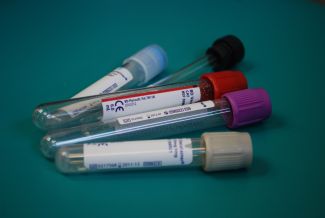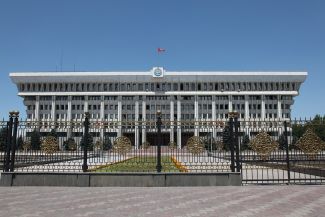
The Financial Action Task Force (FATF) has reduced its “grey list” and discussed measures to address new challenges in financial crime, according to the official FATF portal.
What the FATF Grey List looks like
The meetings of the FATF plenary week took place in Paris from October 22 to 24, 2025. Participants committed to focusing efforts on confiscating illegally obtained assets from criminals worldwide.
Discussions during the plenary week focused on key issues in the fight against illicit financing.
FATF removed Burkina Faso, Mozambique, Nigeria, and South Africa from the list of jurisdictions under enhanced monitoring (the so-called “grey list”).
As of now, twenty countries remain on the grey list: Algeria, Angola, Bolivia, Bulgaria, Vietnam, Venezuela, Haiti, the Democratic Republic of Congo, Yemen, Cameroon, Kenya, Côte d’Ivoire, Laos, Lebanon, Monaco, Namibia, Nepal, South Sudan, Syria, and the British Virgin Islands.
Being on the grey list has significant implications for the global financial and corporate system, as the British Virgin Islands are one of the world’s key offshore jurisdictions, with the highest number of registered companies per capita.
There were no changes to the list of high-risk jurisdictions (the so-called “black list”). It still includes North Korea, Iran, and Myanmar. Despite some efforts by the Iranian authorities to be removed from the black list—including implementing FATF recommendations—Iran has not yet succeeded in leaving the list of high-risk countries.
For the first time, Jamaica and Nigeria participated in the plenary meetings as part of a guest initiative. Their participation aims to strengthen cohesion within the Global Network and expand regional perspectives at FATF meetings.
During the plenary sessions, new guidance was adopted to help countries understand and implement the recently strengthened FATF standards on asset recovery. These recommendations provide jurisdictions with more effective tools to identify and confiscate illicit funds. The new guidance, to be published next month, is intended to address the low global recovery rates of criminal assets.
FATF also warned its members that criminals are increasingly using artificial intelligence in their illicit activities. In particular, they are creating deepfakes used in cyber fraud schemes.
Additionally, mutual evaluation reports from Belgium and Malaysia were adopted during the plenary week, though they will be published at a later date.
Russia’s status in FATF
FATF notes that it maintains the status of the Russian Federation as “suspended”. However, the Group again declined to take any measures against official Moscow. Russia’s status has remained unchanged despite ongoing efforts by Kyiv to have Moscow added to the FATF “grey” or “black” lists.
Russia’s membership was suspended back in 2023 due to disagreement with its policies regarding Ukraine, but FATF found no grounds to downgrade Moscow’s anti-money laundering rating.
FATF has consistently emphasized that adding Russia to the grey or black list requires consensus among all member countries. The intergovernmental body of the FATF includes 40 participants, including China, India, Brazil, South Africa, and Saudi Arabia.
Why FATF assessments matter
The Financial Action Task Force (FATF) was established in 1989 by the G7 countries and is the main international body responsible for developing and implementing global anti-money laundering standards.
Since the 1970s, the world has faced a sharp increase in the legalization of illicit funds through offshore jurisdictions, tax evasion, and other financial crimes. Criminals were often aided by countries that allowed their registries to be used to hide the true owners of businesses.
According to experts, the FATF’s 40 recommendations constitute a comprehensive set of organizational and legal measures designed to create an effective anti-money laundering framework in every country. They do not replace other international regulations but complement them.
Jurisdictions on the FATF black list are considered high-risk countries with significant strategic weaknesses in their regimes for combating money laundering, terrorism financing, and the financing of weapons of mass destruction. FATF urges all its members to exercise caution when dealing with such countries. In practice, this often leads to financial isolation and the resulting economic challenges.
Countries on the grey list are under increased monitoring. While there are no strict restrictions on cooperation with them, other states tend to approach them with caution and apply active monitoring measures. This reduces the number of potential investors and complicates business for existing ones. Being removed from the grey list typically has an immediate positive impact.
What is a commercial register?
In our video, we explain what a commercial register is and how you can check your business partner.
If you need to verify your foreign business partner, contact Schmidt & Schmidt.
We provide extracts from commercial registers in more than 100 countries worldwide.





